If your family includes a feline companion, having this knowledge is essential in planning day to day routine. For example, it might be that you’ve been called away from the house unexpectedly and your cat is at home alone. It could be that your crate training a kitten.
Whatever the reason, knowing how long after eating cats do a poop is something that all owners will need at some point.
So, if you want to make sure there’s enough time for your cat to poop after eating before you go to work or bed, here’s the short answer following by further detail.
How long after eating does a cat poop? Food tends to take between 6 and 8 hours to pass through a cat’s digestive system. That means cats needs around 7 hours after eating for a poop. However, with kittens that time is much less, potentially 4 hours.
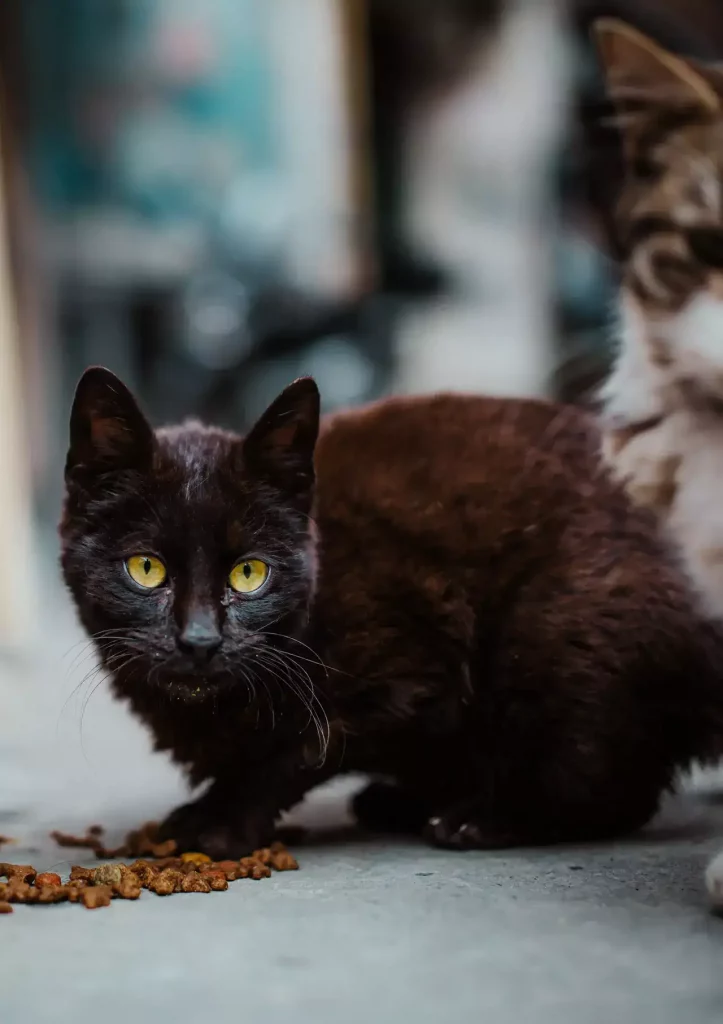
So, yes, whilst cats do poop after every meal, it might be hours before they do. A poop they do after a meal, could actually be food they ate at the previous meal, rather than the one just eaten… and this is why it complicates things and isn’t that simple.
For example, if your cat eats two meals a day; 0700 and 1700, and also has some snacks during the day, he could poop after the 1700 meal – and it won’t be the food from that meal, but a combination of things eaten during the day.
How long does it take for a cat to digest food and poop it out?
The type of food and its ingredients will have a big effect on how long after eating your cat will poop. Wet food is much quicker to pass through your cat’s digestive system than dry food because of the high-water content.
Most tinned cat food contains around 75% water. Now that doesn’t mean to say that the manufacturers add 75% water to 25% ingredients, rather that the ingredients themselves contain an average of 75% water.
Muscle meat, which is the most common meat used in cat food, is highly nutritious and contains 75% moisture. If you need to know how a food might affect the time it takes for your cat to poop after eating it, check out the nutritional information on the can to see how much moisture it contains.
Digestibility is a way of being able to measure the nutrients that cats can absorb from the food they are eating. That then means that a highly digestible food results in less waste because your cat needs to eat less to have all their nutritional needs met.
In comparison, your cat will need to eat more foods with lower digestibility, resulting in the need to poop more often after a meal.
It’s generally thought that a food with less than 75% digestibility (so 25% of it becomes poop) is a low-quality food, while 82% digestibility (18% becomes poop) and above is considered to be a high-quality food.
But it’s not only the quality of the ingredients but also the ingredients themselves which affect digestibility.
Two of the most popular protein sources used in cat food have high digestibility levels, so that’s chicken (80.2%) and fish (87%). Lamb, meanwhile, which is not so common in our cat’s food, is down at 71.5%.
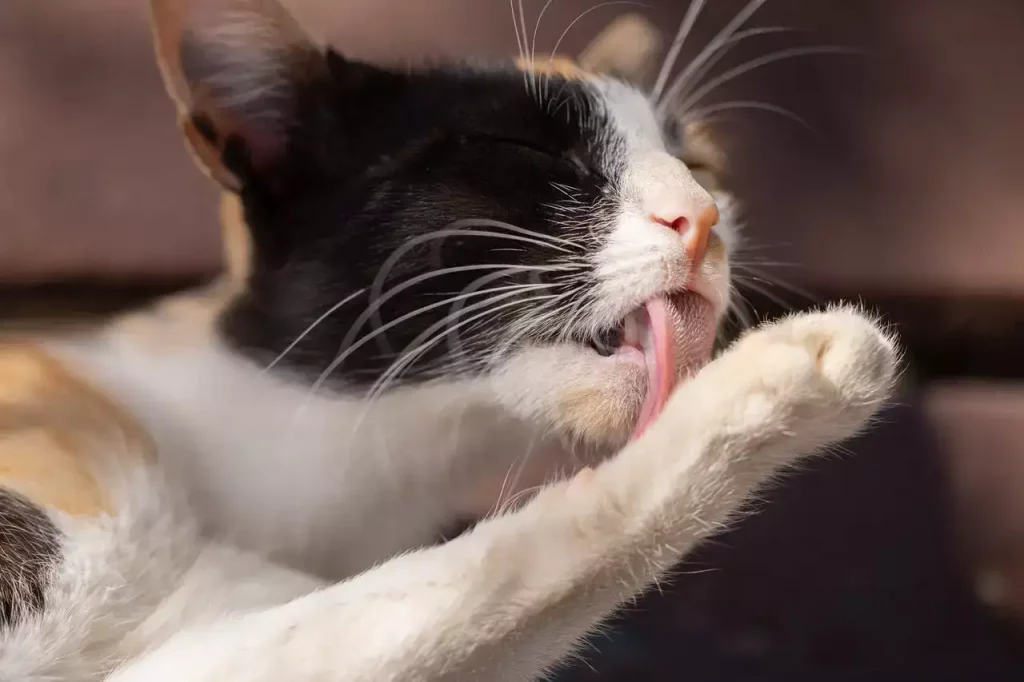
Large amounts of grain in a cat food will also take longer to digest compared to foods that are full of protein. Again, you’ll find out your cat’s food composition by checking out the information on the bag or label.
Ingredients are listed by order of their volume in the food. So, when you see wholegrain cereals as number one on the list, then you’ll know that food is likely to take longer to digest – and therefore, long after eating to do a poop.
Do cats poop after every meal?
Most cats will need to poop after every meal, with healthy adult cats needing to go one to three times a day, and kittens much more frequently.
But of course, the poop after their meal can take up to 8 hours, so the actual poop after their meal could be due to a meal before the current meal… if you see what I mean!
There is some significant variation from cat to cat in what is considered a regular schedule for pooping. The important thing to watch out for is in ensuring that your cat’s pooping routine is consistent from day to day.
If there are any major changes in how often they need to go, then that could be a sign that something is wrong, and a visit to the vet is required.
Some of the factors which can affect how often your cat needs to poop other than the food they eat are:
- Age. We all know that kittens need to relieve themselves more often than an adult cat. That’s simply because they need time for their body to develop control over their bowel movements. Then don’t forget that kittens also get feed more often, so in turn, they also need to poop more often too. Senior cats may also need to go more often. This is thought to be because their muscles and digestive system are less efficient than when they were younger.
- Diarrhea. If you’ve noticed that your cat is pooping less than usual, then that could be caused by them becoming constipated. This is caused by a number of different factors, including being dehydrated, not getting enough fiber in their diet, or low levels of exercise. A number of medical issues can also cause constipation. So that means that if your cat hasn’t pooped for a couple of days, then a trip to the veterinarian is in order.
- If your cat needs to poop much more frequently than usual or if there is a change in its consistency, color, or odor, then it’s likely that your cat has diarrhea. This can be caused by eating too much or eating something that has disagreed with them., like getting into the garbage! Sometimes it can also be the result of an infection or a more serious medical condition, so if there is no change after 48 hours, then again, chat with your vet for advice.
- The volume of food eaten. If there’s been a sudden increase in the amount of food that your cat has eaten, that will also create more waste. The holiday season can be a prime time for this problem with more table scraps being fed and maybe some extra visitors sneaking the cat’s more treats than usual!
- Food ingredients. For example, fiber is an essential part of your cat’s nutritional needs to ensure healthy bowel movement. That’s because fiber adds bulk to the diet, which in turn helps the muscles of the intestine to shift food through the digestive tract. That then means that when the fiber content of your cat’s food is high, then they’re going to need to poop more often. Weight loss cat foods often have high volumes of fiber as it bulks the food out without causing weight gain. But that does mean that you should expect more waste product as well!
- Stress. Ever been in a situation where you were worried about something and found that you need to rush to the toilet? Our cats are just the same. When a cat is stressed, it causes the release of a hormone called norepinephrine. This chemical associated with the ‘fight/flight’ response causes an increase in heart rate, the dilation of pupils, and it speeds up the time it takes for the intestines to empty….cue diarrhea! For some cats, stress can be caused by out of routine activity such as visitors to the home, rides in the car, and visits to the vet.
Do cats need to poop after a walk?
While daily exercise is essential for your cat’s overall health and well-being, it also affects their digestive processes. Running around speeds up your cat’s breathing and heart rate. This, in turn, helps to stimulate the natural squeezing (or contractions) of the muscles in their intestines. Intestinal muscles that squeeze better will help to move out the poop more quickly.
How long can cats hold their poop and pee?
There is no set rule here, as every cat has its own pooping schedule. Some cats may only go once a day, and they are perfectly healthy; others may need to go four or five times a day and be equally fit and well.
Pooping just once a day can result from the type of food they’re being fed, a reduction in exercise, or when cats are fed once a day. As long as your cat is pooping at least once in 24 hours, then there’s generally nothing to worry about.
Kittens, meanwhile, will need to go poop as soon as they have eaten. So be ready to scoop them up and take them outside after meals to prevent any accidents inside the home.
For more information on how long they can hold poop and pee, read this guide.
Conclusion
Just because a cat can go as long as 7 hours after eating to poop, it doesn’t mean they cat won’t poop soon after the latest meal… because that poop you see will be digested from a previous meal.
They can hold it for up to 8 hours though, so hopefully you won’t come home to any accidents!
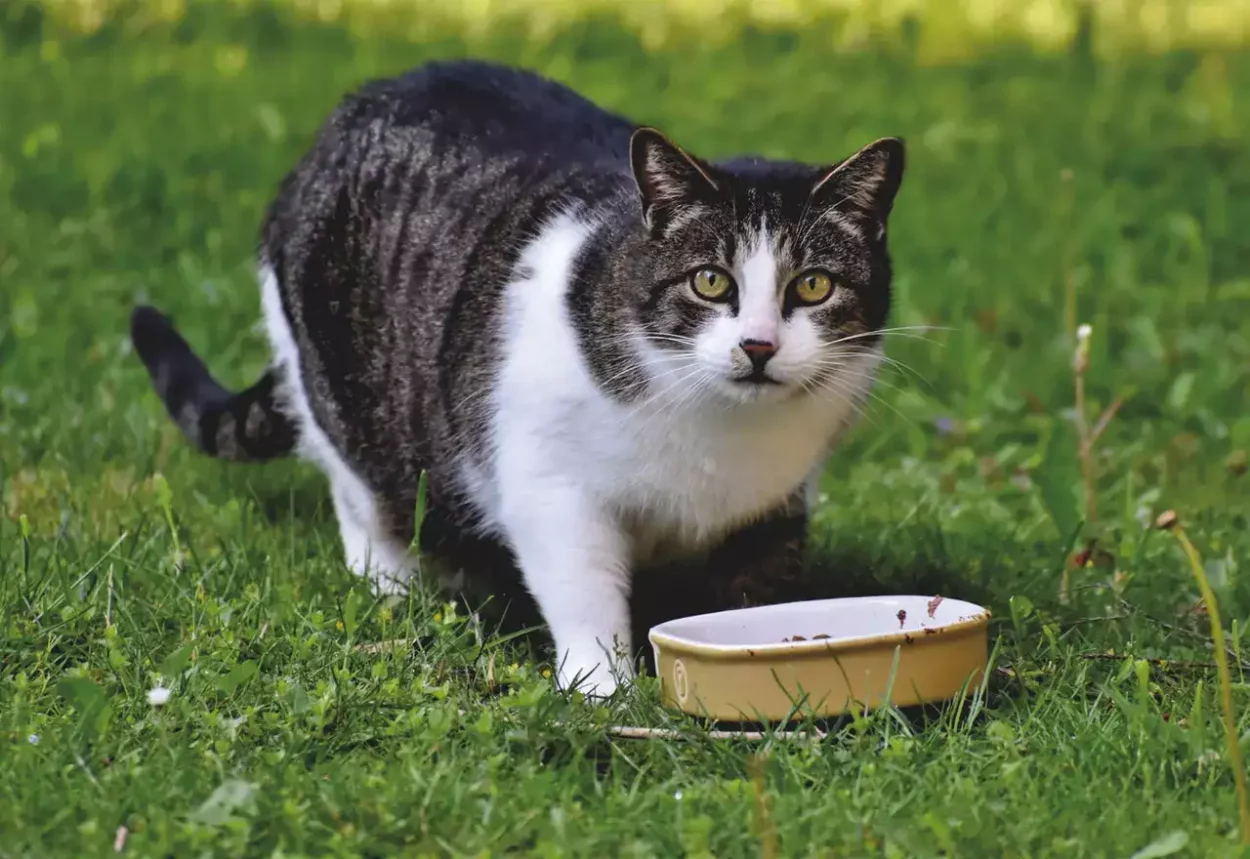
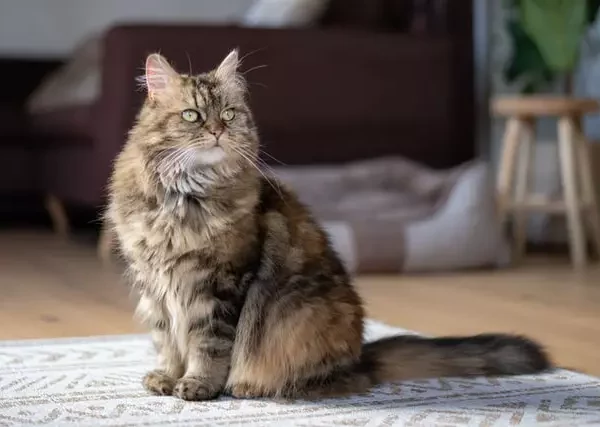
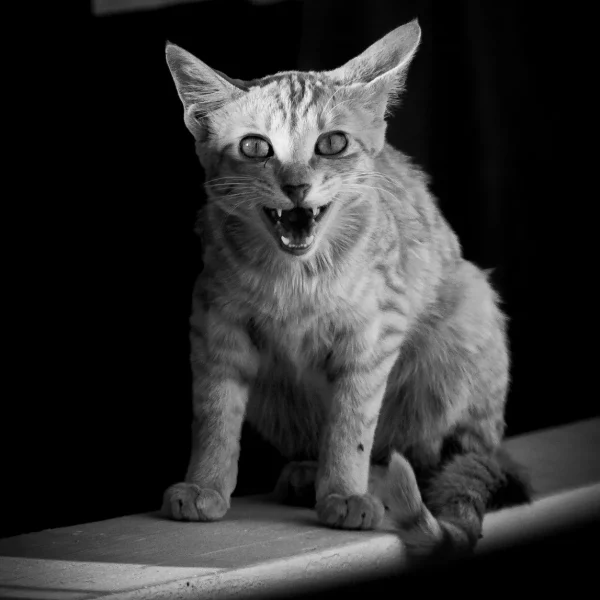
Leave a Comment